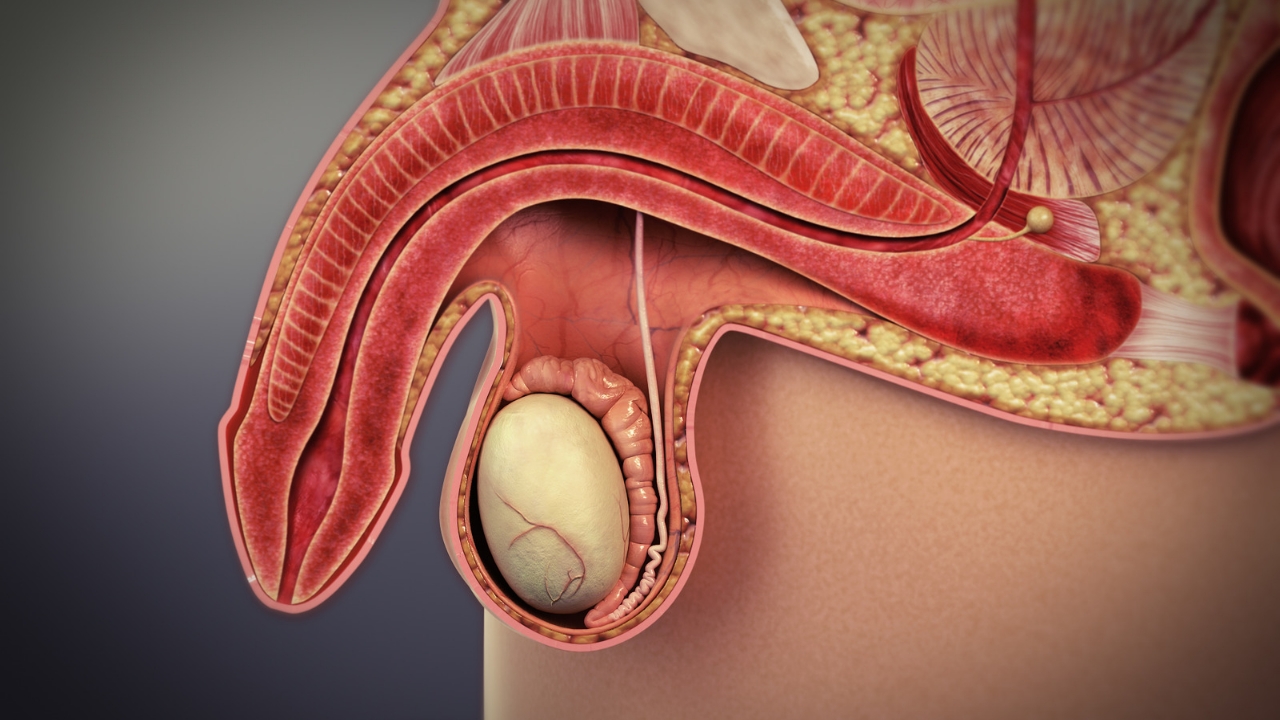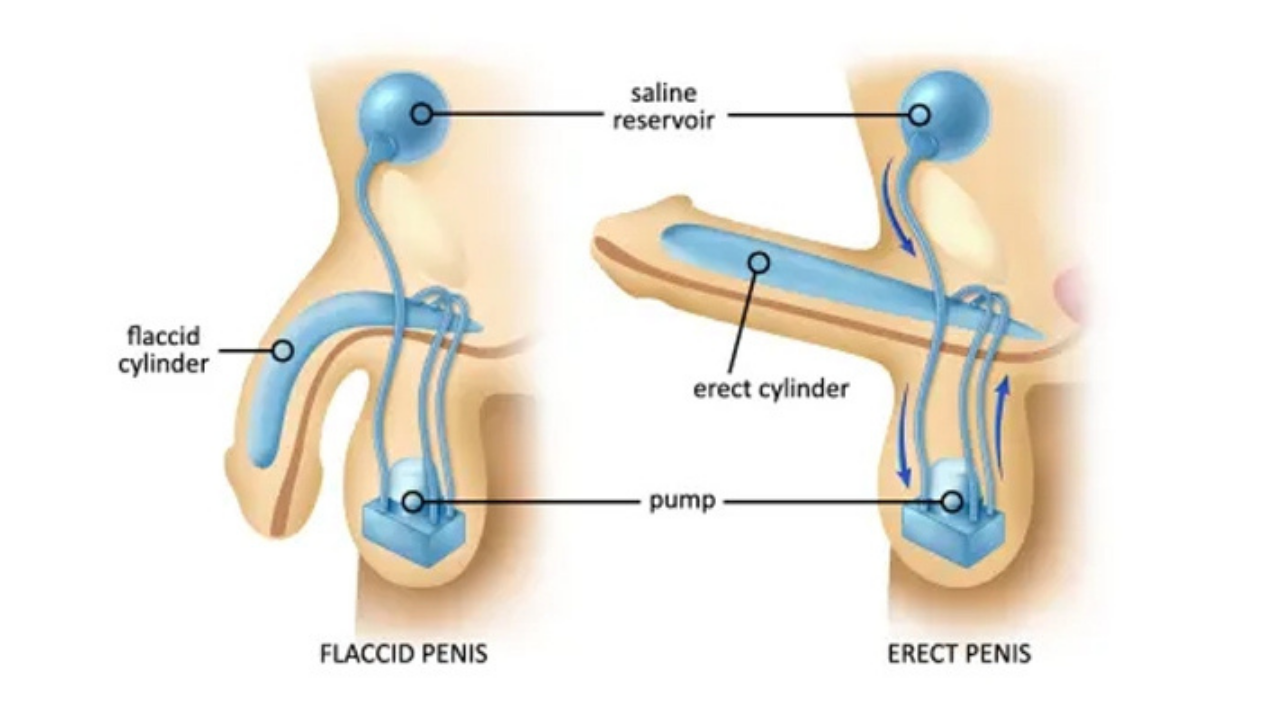Erectile dysfunction is a recurring condition characterized by impaired quality of erection, the inability to maintain or achieve it to the extent necessary for a full sexual intercourse.
The term “erectile dysfunction” was coined in 1992 when the American National Institutes of Health proposed using it as a broader concept than impotence.

According to the WHO (World Health Organization), based on numerous authoritative world studies, every tenth man aged 21-29 complains of erectile dysfunction, every fifth man at 30-35 years old, and almost every second man at 40-70 years old. This is the scale of the problem today, and experts predict that these figures may double in the next 25 years.
Causes for erectile dysfunction
All men need to remember that there are causes for erectile dysfunction! These include:
- increased weight.
- age.
- smoking and alcohol abuse.
- the use of any drugs.
- frequent depressive conditions.
- lifestyle with physical inactivity.
- metabolic syndrome and lipid metabolism disorders.
- pronounced vitamin deficiencies.
- a variety of unfavorable environmental factors (radiation, various types of radiation, etc.).
There are 3 main types of causes for erectile dysfunction.
1. Psychogenic – when erectile dysfunction is associated with anxiety, some specific situations, mental disorders, etc.
2. Organic – when violations of sexual function develop due to some structural changes in the genital organ as such.
- vascular causes (due to increased blood pressure, atherosclerosis, diabetes mellitus, venous insufficiency, surgical interventions, etc.).
- neurological reasons (due to strokes, multiple sclerosis, various neuropathies, tumors, trauma, etc.).
- endocrine causes (due to low testosterone levels, high prolactin levels, thyroid dysfunction, etc.).
- structural reasons (due to trauma to the penis, congenital malformations, Peyronie’s disease, curvature, priapism, etc.).
3. Medicinal – when erectile function develops while taking some drugs (psychotropic, antidepressant, antihypertensive, etc.).
The reasons for the development of erectile dysfunction can be divided into external (exogenous) and internal (endogenous).
External causes for erectile dysfunction:
- Smoking is one of the most significant factors that have a very negative impact on erectile function.
- Alcohol, especially “beer alcoholism”, drug addiction.
- Chronic fatigue syndrome, chronic lack of sleep, constant stressful situations at work and in family relationships.
- Environmental factors: unbalanced irrational diet, food depleted in vitamins and microelements, GMO (genetically modified foods).
- Increased background radiation, work in high-frequency radiation conditions.
- Features of the formation of a man’s personality and the formation of his sexuality.
Internal causes for l erectile dysfunction:
- Hormonal regulation disorders: hypogonadism (insufficient testosterone production by the testes of a man), a number of diseases associated with dysfunction of the pituitary and adrenal glands, some tumors (for example, pituitary adenoma).
- Side effects of taking various medications (some antihypertensive and antiarrhythmic drugs, corticosteroids, psychotropic drugs and antidepressants, etc.).
- Age-related and acquired changes in the tissue and structures of the penis involved in the mechanism of erection.
- Neurological diseases and disorders (epilepsy, Parkinson’s disease, multiple sclerosis, trauma and operations of the brain and spinal cord, small pelvis and perineum).
- Diseases of the cardiovascular system (hypertension, atherosclerosis, etc.).
- Diabetes mellitus, obesity, metabolic syndrome.
The above list contains only the most common causes underlying the development of dysfunction or diseases, the symptom of which is a deterioration in the quality of erection.
Classification
Erectile dysfunction is usually distinguished by the degree of severity: medium; moderate to severe erectile function.
The classification is also generally accepted and important due to the development of the disease:
- psychogenic – about 40% of cases.
- organic – 30% of cases.
- mixed – 25% of cases.
- without an established reason – 5% of cases.
Alarming symptoms of erectile dysfunction are:
- difficulty in the onset of sexual arousal and its continuation.
- weak erection.
- partial or complete absence of morning erection.
Symptoms of erectile dysfunction
The main symptoms of erectile dysfunction are:
- decreased sex drive.
- weakness or absence of night and morning erections.
- an increase in the interval between lovemaking and the onset of an erection.
- premature ejaculation and a decrease in the amount of sperm secreted.
- decrease or loss of the sensation of orgasm.
- long recovery between erections, the inability to perform a second intercourse.
- an inability to reach and hold enough tension on the penis for penetration.
- in advanced cases, complete impotence develops.
Alarming symptoms of erectile dysfunction are:
- difficulty in the onset of sexual arousal and its continuation.
- weak erection.
- partial or complete absence of morning erection.
Other types of sexual dysfunctions in men
There are also disorders of sexual function in men, which are not directly erectile dysfunction, but cause an equally decrease in the quality of life. There are various ejaculation disorders.
The greatest discomfort not only for a man, but also for a woman is delivered by accelerated ejaculation. The inability to conduct high-quality sexual contact leads to psycho-emotional stress and even an unwillingness to have sex at all. Painful and difficult ejaculation is less common, but also dramatically reduces the quality of life.
With various neurological diseases, anejaculatory syndrome can develop – a complete inability to independently achieve orgasm and ejaculation. After surgery on the prostate gland and taking certain medications, persistent retrograde ejaculation may develop – the sperm is thrown into the bladder during orgasm. One of the most common sexual disorders is the lack of sexual desire, desire (libido).
Decreased libido can be caused by both neuro-emotional overstrain, physical fatigue, and concomitant diseases in the body, hormonal imbalance. Most of all these abnormalities are quite successfully and safely treated. Their timely correction is important in order to prevent the formation of secondary psychological deviations.
To understand why an erection is impaired, you need to at least roughly imagine the process of its occurrence in the norm. Allocate psychogenic and reflex erection. Psychogenic is triggered by the limbic system of the brain under the influence of erotic stimuli (visual, olfactory, auditory, etc.).
Reflex erection is caused by touching the penis, the lower spinal cord and peripheral nerves are responsible for its development. In response to stimulation, the vascular endothelium secretes nitric oxide, the arteries dilate, the blood flow to the penis increases sharply, the cavernous bodies filled with blood constrict the veins, preventing venous outflow, and an erection occurs. An important condition for this process is the normal level of sex hormones.

Erectile dysfunction can be provoked by a violation of any of these mechanisms.
The reasons for its development are many and varied:
- The vast majority (60-70%) of cases of erectile dysfunction are caused by diseases of the cardiovascular system. Among them are arterial hypertension, ischemic disease, a history of acute circulatory disorders. The vessels of the genital organs are susceptible to atherosclerosis in the same way as everyone else. Abnormal narrowing of the penile arteries interferes with normal blood flow and causes erectile dysfunction. Chronic stress, a sedentary lifestyle, smoking, diabetes mellitus, and high blood cholesterol levels also have a negative impact, since these factors themselves cause hypertension and atherosclerosis.
- Disorders of nerve conduction at different levels are a common cause of erectile dysfunction. They can occur as a result of acute disorders of cerebral circulation, tumors and injuries of the brain and spinal cord, intervertebral hernias, various neurological diseases such as multiple sclerosis, etc.
- Endocrine disorders are also of great importance. First of all, diabetes mellitus and diabetic polyneuropathy, hypogonadism, obesity, thyroid pathology, as well as any changes in the hormonal background, accompanied by a decrease in the level of testosterone in the blood.
- Persistent erectile dysfunction can be associated with injuries such as fractures of the pelvis, damage to the corpora cavernosa, ruptured urethra, previous surgery on the genitals.
- Inflammatory diseases of the genitourinary system (prostatitis, urethritis, vesiculitis) in the absence of adequate treatment can become chronic, which often leads to erectile dysfunction and infertility.
- Quite often, erectile dysfunction is the result of exposure to chemicals in the body. It can be a side effect of taking many common medications: psychotropic drugs (antidepressants, antipsychotics), drugs to lower blood pressure (beta-blockers, diuretics), antihistamines, lipid-lowering drugs, hormonal and other drugs. The use of drugs and alcohol has an unconditional negative effect on potency.
- Relatively rarely, psychiatric diseases – neuroses, depression, schizophrenia – act as the cause of erectile dysfunction.
- Psychological disorders, despite the tendency of most men to justify their failure in bed, are the cause of erectile dysfunction in only 10% of cases. In younger patients, this may be due to pathological self-doubt and fear of failure. Stressful situations, fatigue, nervous exhaustion, problems at work, the transformation of sexual intercourse into a routine, or, on the contrary, conflicts with a partner, a break in relations, also negatively affect. Purely psychogenic erectile dysfunction, in contrast to organic erectile dysfunction, is of a periodic, situational nature, with it maintaining normal morning and night erections, as well as erections during masturbation.
In most cases, erectile dysfunction is caused not by one, but by several factors at once, that is, it is of a mixed nature.
The widespread belief that erectile dysfunction develops with age has not been confirmed in studies. Obviously, the immediate cause here is not age as such, but the abundance of concomitant diseases and the forced intake of a large number of medications.
But whatever the cause of erectile dysfunction, this pathology requires a full examination and treatment. Timely detected erectile dysfunction is amenable to drug treatment in 95% of cases. Despite this, only one in ten men suffering from erectile dysfunction seeks professional medical help. Most blame it on stress or even try to hide the problem by pretending that everything is in order.
It is possible to suspect that a partner suffers from a violation of potency, according to some indirect signs: a man avoids sex under various pretexts, refers to poor health, fatigue, comes home late from work, ignores hints, never initiates sexual intercourse. In this case, it is worthwhile to delicately convince him to consult a specialist – urologist or andrologist.
Diagnosis of erectile dysfunction
When diagnosing erectile dysfunction, it is very important to determine the degree of their severity. It is also necessary to find out the cause of these disorders, to establish the disease that caused the development of a decrease in erection. It is necessary to determine the presence or absence of other types of sexual disorders (decreased libido, ejaculation and orgasm disorders).
Psychogenic dysfunction usually occurs suddenly. At the same time, normal morning erections are preserved. In psychogenic disorders, there are often problems in the relationship with a partner. Erectile dysfunction in this case occurs only under certain circumstances, and under other conditions – sexual function is normal.
With organic erectile dysfunction, the opposite is true. Problems arise gradually, morning erections are reduced or completely absent. At the same time, as a rule, a good sex drive remains.
The quality of sexual intercourse almost always suffers, with any partner and in various situations. When the first alarming symptoms occur – a lack of sexual desire and a weak erection – it is necessary to consult an andrologist.
In order to identify the causes of erectile dysfunction, specialists of the Mother and Child group of companies can conduct a number of studies:
- Questionnaire – filling out the ICEF-5 questionnaire by the patient, which is generally accepted all over the world.
- Examination of the genitals: testicles, prostate, penis.
- Assessment of secondary sexual characteristics, androgenic saturation of the body and the timeliness of the onset of puberty.
- Laboratory analysis of urine and blood.
- Study of hormone levels.
- Study of the level of carbohydrate and lipid metabolism.
- Assessment of the state of the cardiovascular (measurement of pulse, blood pressure and, if necessary, additional diagnostics).
- Assessment of the state of the nervous system.
- Monitoring of nocturnal spontaneous erections.
- Test with intracavernous administration of vasoactive drugs (analogue of prostaglandin E1 – alprostadil).
- Doppler ultrasound of the penile arteries.
- Investigation of the bulbocavernous and cremasteric reflexes.
- Penile electromyography.
- Angiography of the vessels of the penis.
- Cavernosometry.
- Rheophalography.
- Endourethral thermometry.
- Ultrasound of the genitals.
As a rule, all diagnostic methods are not necessary. Depending on the specific situation, the doctor will offer the minimum required set of techniques.
Treatment
Before starting treatment, all patients are advised to exclude as much as possible risk factors for erectile abnormalities. Normalization of lifestyle and sexual activity is important. An important step is to decide on the possibility of canceling or replacing the drugs taken that can negatively affect an erection.
Neurological and cardiac problems are eliminated with the help of narrow specialists, in particular a psychotherapist. Doctors recommend that such patients come to a consultation with a sexologist and psychologist together with a partner – this will help to understand each other, relax and trust.
Depending on the cause of the disease, treatment methods are also distinguished. If a curable cause of erectile dysfunction is identified, it is necessary to eliminate it.
There are stages of conservative treatment for erectile dysfunction
1. At the first stage, if there are appropriate indications, drugs are used to stimulate erection (in particular, phosphodiesterase type 5 inhibitors). In the presence of androgen deficiency – drugs that increase the concentration of testosterone. For androgen replacement therapy, injectable and transdermal forms of testosterone are used.
The drug, the dose, the mode of administration and the duration of the course are selected individually. It is necessary to take any medicines of these groups only as directed by a doctor. Otherwise, serious side effects are possible. In the case of psychogenic disorders, psychosexotherapy is an important stage in the first line of treatment.
If it is impossible to prescribe or the patient does not want to use drugs, it is recommended to prescribe therapy with local negative pressure as a physical means of first line aid. The essence of the method lies in the fact that the penis is placed in a special flask, where negative pressure is created using a vacuum pump.
This leads to an increase in blood flow to the penis, which leads to an erection. To maintain an erection, a special compression ring is applied to the base of the penis to restrict venous outflow.
2. The second stage of treatment involves intracavernous or intraurethral administration of vasoactive agents. It is used in the absence of the effect of drugs. The effectiveness and quality of erection is quite high. This method of treatment has contraindications and side effects.
Surgery
With the ineffectiveness of conservative therapy, if necessary, surgical treatment of erectile dysfunction is used. Patients with lesions of the arteries of the penis supplying the pelvic organs are recommended surgical interventions on the vessels. If all other methods of treating erectile dysfunction are unsuccessful.
If the patient insists on a radical solution to his problem, phalloendoprosthetics with semi-rigid prostheses or hydraulic implants that mimic an erection are recommended as a last resort. The number of satisfied patients after penile prosthetics exceeds 80%.
Prevention of erectile dysfunction
You can reduce the likelihood of a decrease in erection. For this, doctors recommend:
- Proper nutrition.
- Limitation and elimination of bad habits (alcohol and tobacco use).
- Regular sex life.
- A healthy lifestyle that includes rest and active physical activity.
- Control and correction of body weight.
- Control and correction of blood glucose and lipids.
- Observation of the patient by a urologist – andrologist is recommended.
